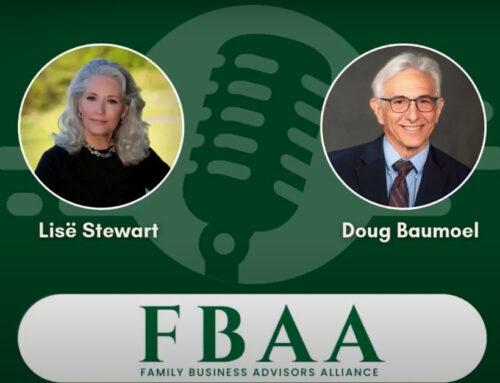Can you recognize family business conflict?
Few people are eager to admit their family has conflict. Especially now that social media reminds us daily that our friends have perfectly harmonious families (!), it can feel like a failing to admit that there are tensions in your family…or worse. But learning to recognize family business conflict and look it in the eye can have enormous impact, especially for stakeholders in family business or family that shares significant assets. For enterprising families, conflict can be even more pernicious—and even more damaging if left unaddressed.
To Succeed and Sustain Relationships: Managing Conflict is the Key
In our over 15 years of helping family businesses realize their potential, we’ve learned that effectively managing conflict is the critical success factor for ongoing business success and family strength. We’ve seen this validated time and again.
To be able to manage conflict, the first step is knowing how to recognize it, even in its infancy.
Family business conflict can come in two forms:
- Active conflict (fighting): Compromises the business and threatens family relationships and shared wealth
- Passive conflict (being stuck): Stakeholders become unable to move forward or make decisions from fear of conflict. A common reaction is creating siloed organizations, avoiding each other and important conversations necessary for good planning.
Active conflict is easy to recognize; passive conflict—much more subtle—is far too easy to ignore. Passive conflict that is ignored can explode into active conflict with severe consequences on the business and family relationships; active conflict in family business can be extreme and intractable.
The reality is that all family businesses or families with a high degree of interconnectedness from sharing assets have built-in conflict to manage. It comes with the territory, so if you are in that territory you’d better learn to see the signs.
When You’re Looking for Conflict, Do You Know What to Look For?
Even if the inherent conflict in family business is not news to you, you might not feel confident you know how to identify the manifestations within your family—or in the past you might not have recognized your differences as “conflict.”
Conflict in enterprising families can look like:
- Being stuck and unable to move forward from fear that conflicts might be triggered if important decisions are made or needed actions taken
- Tensions and bias handed down from previous generations that limit the enterprise
- Structural pitfalls designed to avoid conflict (ex, siloing and lack of accountability systems)
- Tacit disagreement about how power is shared and used
- Factionalism among family branches
- Disrespect and friction among stakeholders
- Lack of alignment concerning strategy and tactics
- Uncertainty spawned by poor planning
- Crisis due to unexpected events, market changes, and/or competitive threats
When families go to war over business, wealth or power— or when family issues overwhelm sound economic decision-making—everyone loses. When families are able to engage with their differences, they are able to reap even greater rewards than those who never faced such adversity.
Are you hoping to avoid conflict in your family but right now are letting the differences drive?
Continuity partners Doug Baumoel and Blair Trippe wrote the book about working with family business conflict.
Learn more about Continuity’s NEW conflict management trainings for families and our approach to conflict management for enterprising families.
Stay in the Know
Get our latest articles, tips, and insights delivered straight to your inbox.
Share this Insight, choose your platform!
About Us
Continuity Family Business Consulting is a leading advisory firm for enterprising families. Using a full suite of service capabilities, we help families prevent and manage the single greatest threat to family and business continuity: conflict. It is through this lens that we advise our clients and build customized strategies for succession planning, corporate governance, family governance, and more. We help families improve decision making, maximize potential and achieve continuity. To inquire, contact us.













